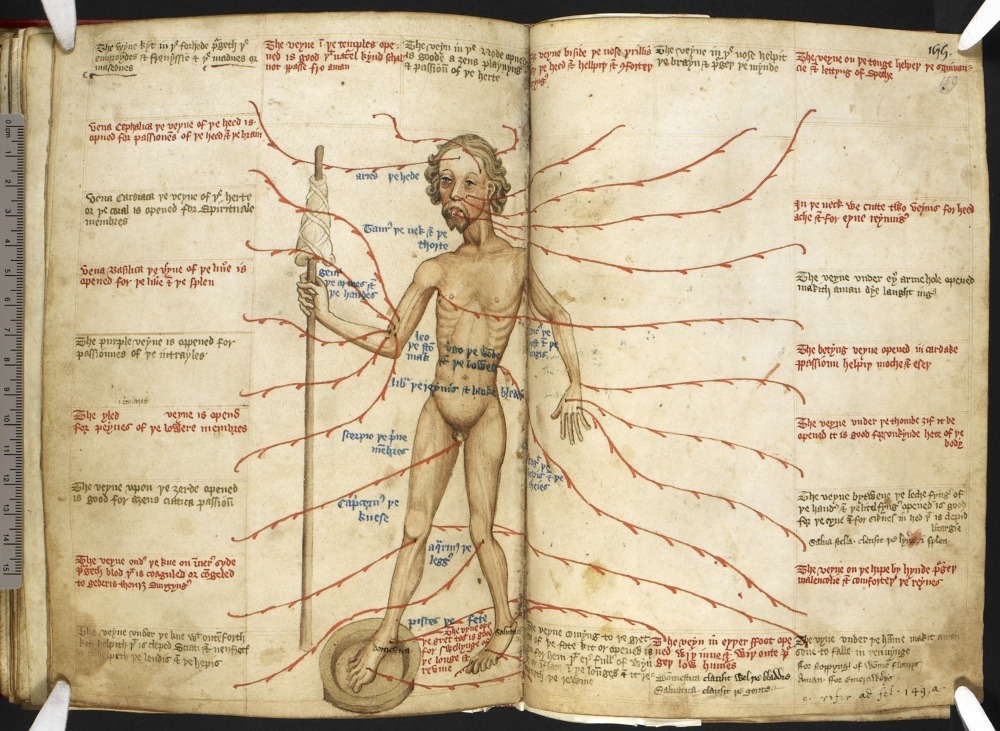 |
| British Library |
I found this book noteworthy as it features a blood-letting diagram, written in Middle English, and it details the areas in which you can create a wound, and the respective disease it will help cure. The author wrote "The purple veyne is opened for paffoumes* of pe urtrayles*", this blog post will not discuss the accuracy of this persons claim, but these words are around 500 years old and still partially understood by the average English speaker! The words written in the book are not Old English, which is not readable by Modern English speakers, but rather Middle English. According to the Oxford English Dictionary the history of the English language is as follows; Old English, the first and most unrecognizable version was spoken up until 1100 AD, Middle English was spoken from then on until the late middle ages, and finally came the early and late versions of Modern English. Middle English is mostly scene as the period of evolution in which the English language went through the most rapid and drastic changes. Philip Durkin of the OED writes, "it became less ‘synthetic’ and more ‘analytic’", and "more heterogeneous, showing many borrowings from French, Latin, and Scandinavian". I relate this to the rapid changes in English I have seen in my life time with the internet. Slang is often adopted from other languages in Europe or Latin America, like the phrase "deja vu", older words seems to fall in and out of popularity, and new ones seem to mysteriously find their origin in previously innocent vocabulary.
 |
| British Library |
Through years of alteration, you take the words written above(from a fishing guide written in 1496), and arrive at the current version of the English language. Cultural trends and the falling popularity of Latin saw English ever increasingly used and fleshed out. Much like today, certain words began to take on certain connotations and deeper meanings that either saw their demise or carried them on for a millennium into the current version of the English dictionary. With the advent of the internet, the exchange of language, especially between other languages, has never happened faster. New terms are created for the most obscure and niche topics, and then lost within a few years once they aren't useful any more. It is maddening to keep up with this, and it is really strange to wonder whether the English language will stagnate, or warp and weather into something completely unrecognizable in time.
I found these works fascinating because it made me question and acknowledge that there is no fine line where the English language suddenly was in use. And that possibly some time long after I am gone, the internet's wide array of written works will be only readable by linguists.
No comments:
Post a Comment